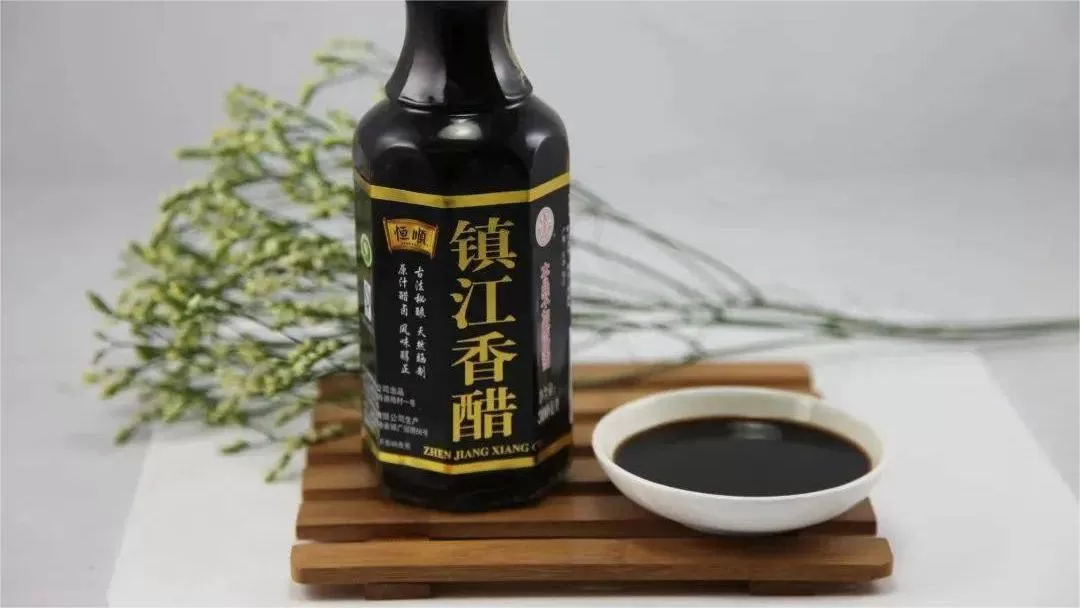Zhenjiang Fragrant Vinegar (镇江香醋), a specialty of Zhenjiang City in Jiangsu Province, China, is a renowned condiment and a designated geographical indication product of China. The term “fragrant” in Zhenjiang vinegar highlights its distinct aromatic quality, setting it apart from other types of vinegar. Zhenjiang vinegar falls into the category of black vinegar, also known as dark vinegar or “wu cu” in Chinese. First created in 1840, it quickly gained fame both domestically and internationally, with limited exports commencing in 1909. The vinegar has received numerous accolades within China, including gold medals, top awards, and first prizes on five separate occasions. In 1980, it was honored with the National Silver Award.
Zhenjiang Fragrant Vinegar boasts five distinctive characteristics: color, fragrance, acidity, mellowness, and concentration. Its appearance is clear and bright, with a gentle acidity that is balanced by a rich fragrance and a pure, concentrated flavor. The texture is smooth and velvety, with a subtle sweetness that adds to its overall appeal. Zhenjiang vinegar maintains its quality over time, becoming even more aromatic and mellow with age. When compared to Shanxi vinegar, one of its prominent features is its slight sweetness. This sweetness is particularly pronounced when paired with the savory flavors of Jiangnan-style meat-filled snacks, enhancing their deliciousness.
The brewing process of Zhenjiang Fragrant Vinegar involves using Daqu (fermentation starters) containing various microorganisms, such as molds and yeast, for sugar fermentation. In this process, starches in the raw materials are first converted into glucose by the amylase secreted by the mold, and then the yeast’s alcoholase converts the glucose into alcohol.
The Daqu plays a crucial role in the production of Zhenjiang vinegar. It acts as a sugar fermentation agent, and its ability to break down proteins and produce esters is closely related to the unique flavor and characteristics of Zhenjiang Fragrant Vinegar.
The production of the Qu typically occurs between July and August in the Northern Hemisphere when the weather is warm and lotus flowers are in full bloom. This type of Qu is known as “Fu Qu” or “summer Qu.” The Daqu undergoes a storage period of no less than eight months before being utilized in the vinegar-making process.
Zhenjiang Fragrant Vinegar stands as a testament to the meticulous craftsmanship and time-honored traditions of Zhenjiang’s culinary heritage, captivating taste buds with its complex yet harmonious flavors. Whether used as a dipping sauce, marinade, or condiment, this iconic vinegar adds a touch of sophistication to a wide range of dishes, making it a staple in Chinese cuisine.


